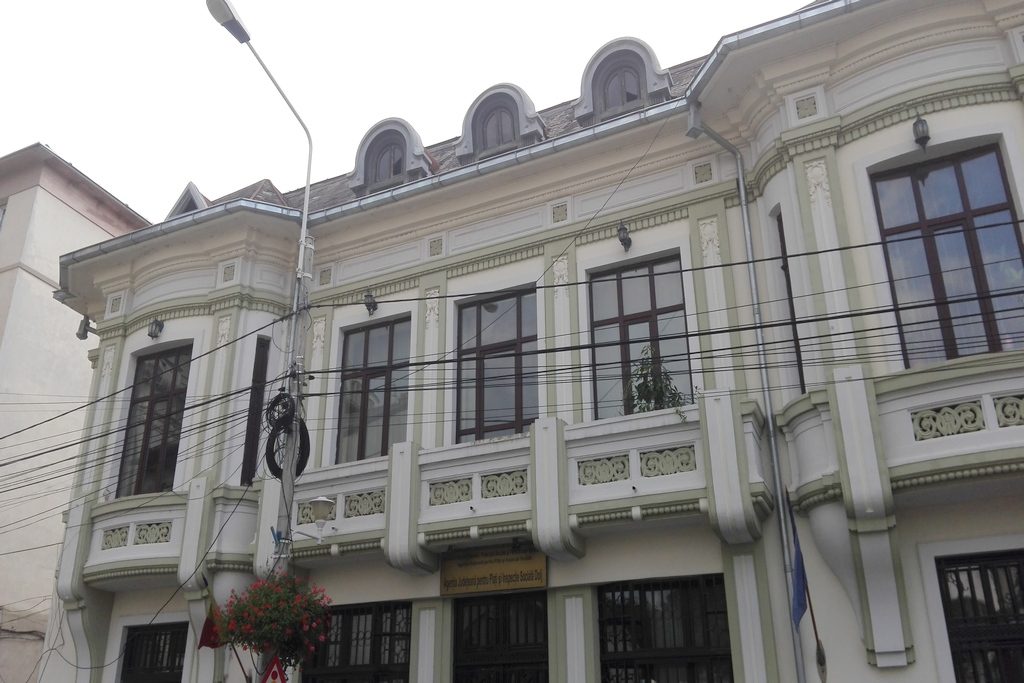

The head office of the County Agency for Payments and Social Inspection is one of the buildings included on the list of tourist objectives of the county Dolj, being built at the end of the XIXth century.
The origin of the current name of the city is the subject of many controversies and floats in legend; the only thing which can be said with certainty is the fact that the name comes from the Slavonian “kral” (king, gallant).
The period 1880 – 1906 from the city history, it is named Craiova Felix. This was going to be the most blooming period until that period, the conquest of the national independence, the putting into the possession of land, the construction of the railway Craiova – Bucharest, developing the industry and the cultural – artistic life were going to transform the city.
By the end of the XIXth century, Craiova – with the over 40.000 inhabitants – was a city which had small factories and workshops of chemical products, agricultural vehicles, graphical arts, tanneries, textiles, construction materials, food industry, etc.
In the year 1900, Craiova had 924 companies with an industrial character (among which 20 belonged to the big industry). It is asserted even the bank commerce, at the beginning of the XXth centurt, already existing 6 banks and 2 exchange markets.
In 1887, at Theodorini Theater, there are lighted the first electric lights. On the 26th of October 1896 it is put into operation the electric enterprise of Craiova (with AEG equipments – Allgemeine Elekticitats – Gesellschaft), having an installed power of 310 horse power and which charged 365 lamps from 39 streets in a network of 30 kilometers. Craiova was the first city from Romania charged with electric current according to the motors with internal combustion.
In this period there were going to be built the Palaces of the Vorvoreni and Jean Mihail. Also, in this period (1890) there is projected the former Palace of Justice (today the central headquarters of the University) by the architect Ion Socolescu. The construction is an exemplification of Neo – Classicism in the architecture. The current cathedral Saint Dumitru was built up in the year 1889 from the place of the former church destroyed by the earthquake from 1840 in the old fireplace of the city. It was inaugurated, according to the plans of the French architect Lecomte de Nouy, the Romanescu park (initially names the Bibescu Park), one of the biggest urban European parks. There were founded the Botanical Garden and the forest park Terasa Jiului. There was managed to redo the park “Mihai Bravu” (near the current headquarters of the faculty of agronomy). The Building of the National College Carol I was built between the years 1895 – 1896 according to the plans of the architect Toma Dobrescu. The Minerva complex was built between the years 1898 – 1903. They all are part even today from the cultural patrimony of the city.
